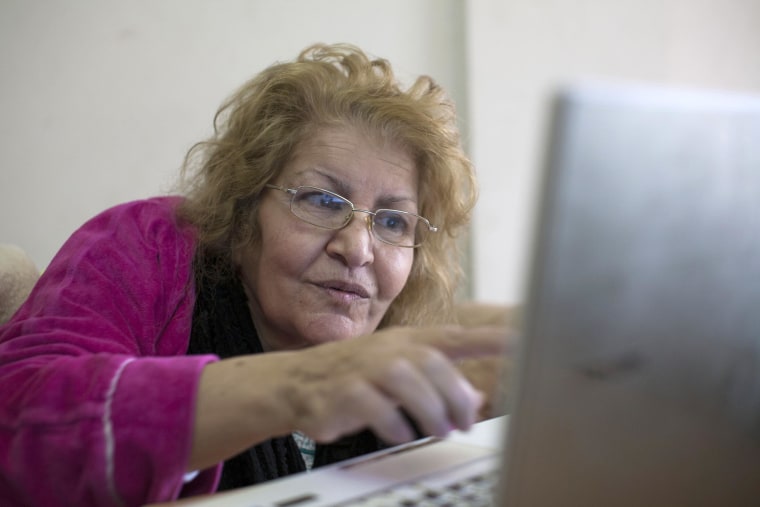Fouzia is so sick she is bedridden. She lies in an unheated room in a cold, damp house in Sanliurfa, Turkey, just across the border from Syria. Since the civil war in Syria began, her life has been on a downward spiral.
Fouzia, 64, is from Raqqa, now the de facto capital of ISIS’s self-proclaimed caliphate. A year ago, she fled the city. Now she lives in a house that acts as a temporary sanctuary for others who fled Raqqa. But Fouzia can’t move on.
NBC News is tracking displaced and anguished Syrian families as they cope with the violence and fallout of civil war. Read more on Syria's Suffering Families
When Fouzia left Syria she was healthy. Fighting was raging among multiple groups — Syrian government forces, various rebel groups and ISIS. She feared the extremists would eventually win and persecute secular, forward-thinking women like herself. ISIS took full control of the city soon after she fled.
“In Raqqa, everything stopped, they closed the university, women are forbidden to go outside. I say even the trees are black,” Fouzia said. She still has family living in Raqqa and asked NBC News not to reveal her last name in fear for their safety.
Fouzia worked as a civil servant, but it was her love of poetry and writing that consumed her life. She held monthly literary salons at her apartment, where like-minded people gathered at night to discuss poetry and classical music and works of fiction. She was one of the few women who would go uncovered on the streets.
She escaped ISIS' reign, but she had more misfortune when she got to Turkey. Fouzia underwent a botched operation for what she described as a hole in her stomach, and five months ago, her condition deteriorated. She had no family around her to help.
“If I could walk, I could earn some money, but I can’t move my legs. Where else can I go?” she asks.
The activists running the house took pity on her and offered her a room on the ground floor. One young man sleeps on the floor in her room and tends to her. But she knows it cannot last forever.
“I love them, they are like my sons,'' she said. “This one, Ismail, he sleeps in my room. He’s like my son and fetches me food and water. I say 'Thank you, God, because you send me nice people like this.'”
But when she talks about the future, she breaks down in tears.
